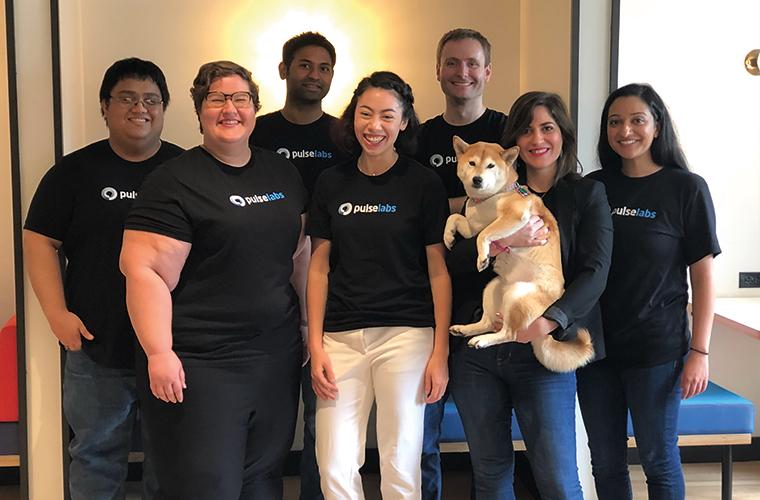Start-up: Pulse Labs, US, 2017
Meet the company harnessing the power of AI for improved voice assistant technology

Meet the company harnessing the power of AI for improved voice assistant technology
Pulse Labs is a meeting of minds between two gym buddies – Abhishek Suthan, a former product strategy vice-president at Goldman Sachs, and Dylan Zwick, a PhD maths grad and one-time data science director at online retailer Overstock. Their love for early-morning high-intensity Insanity workouts in their former Salt Lake City neighbourhood was matched only by their passion for entrepreneurship and emerging tech. In particular, both were fascinated by the potential presented by conversational AI in the voice assistant ecosystem through devices such as Alexa, Google Assistant, Cortana and Siri.
“Human interface design has spent decades being a visual UI and the transition to a conversational model poses several challenges,” says Zwick.
One of main challenges for designers of voice apps and skills is that voice responses do not follow the limited variables of a drop-down menu decision tree. There are many conversational loops involved in replying to even simple ‘yes’ or ‘no’ answers. “You need to be able to allow users to make decisions at any given time and you need to react appropriately and respond in a way that matches that input,” says Zwick.
Human interface design has spent decades being a visual UI
He adds that creating a skill for devices like Alexa or Google Assistant also involves assessing the responses of different demographics. “With kids, for example, you need to incorporate all the standard strategies for handling unexpected inputs, while also being able to ‘fail gracefully’ to advance the story, so if a response to a choice doesn’t make sense, it’s OK to pick one option and move on as if a sensible answer had been given.”
Zwick and Suthan observed that there was a lack of tools or testing capable of generating this kind of insight that focuses on how real people and different groups interact and respond to voice apps – so they set about building a prototype.
Based on this early work, the duo became one of nine start-ups accepted into the inaugural 2017 Alexa Accelerator, which is a Seattle-based programme co-led by Amazon and the investment platform Techstars.
“We’d quit our jobs by this point and had moved to Seattle to make this happen and that programme took us from being two guys with a side project to running a full-time company,” explains Zwick.
The company has since raised $2.5m seed funding from the Amazon Alexa Fund, Bezos Expeditions, Google Assistant Investments and Madrona Venture Group.
Pulse Labs’s offering comprises a testing platform for developers and designers, which integrates an SDK into a skill code and provides analytics and insights to enable developers to apply actionable improvements. It also offers a panel of real people that enable app developers to test with specific demographics in mind.
Adjacent to this is a market research unit, which Zwick likens to ‘a Nielsen for voice’, comprising a panel of users who are monitored so that Pulse Labs can analyse user behaviour and identify trends. Work in this area looks set to scale up thanks to a partnership with data insights and consultancy firm Kantar, which was announced late last year.
The firm’s clients include multiplatform marketing agencies, conversational design studios, gaming companies and other third-party outfits designing and developing voice applications for clients such as HBO, BBC, NBC and the Stephen and Tabitha King Foundation.
Pricing is structured on a per-project basis, although many firms opt for an annual contract so that they can operate a continual testing cadence.
More recently, Pulse Labs has seen a surge of custom during the coronavirus pandemic for its remote testing service, which has become popular among larger enterprises that usually perform these kind of tasks in-house.
While the majority of Pulse Labs’s focus has been on skills created for home voice assistants, Dwick notes that the ecosystem is rapidly expanding, and in-car voice integrations are soon set to offer new use cases and commercial opportunities for the start-up.
This article first appeared in the July 2020 issue of FEED magazine.
